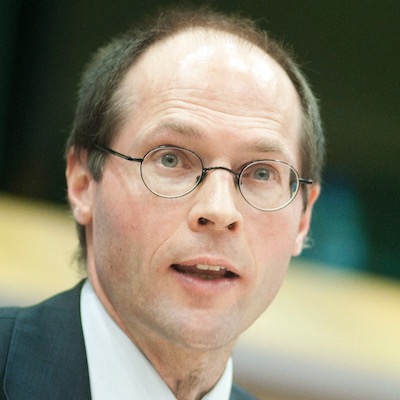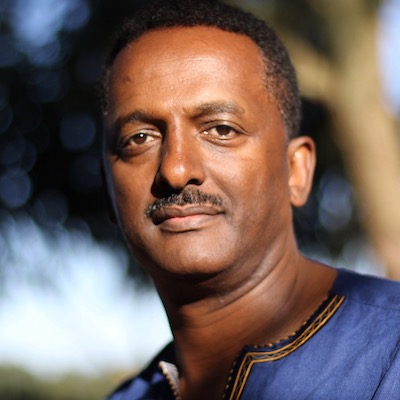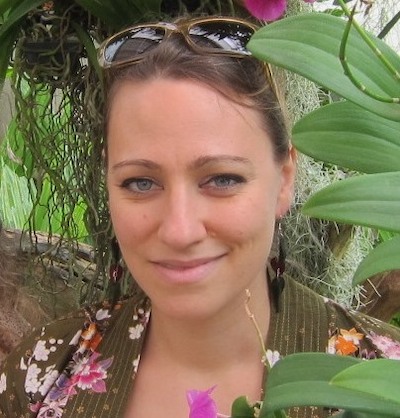Shaping the Future of Food Markets in Africa
What kind of markets do we need for the transition to agroecology?
The 3rd AFSA Biennial Food Systems Conference and Celebration
Venue
Online (Zoom)
Date
27th-29th October, 2020

About the Food Systems Conference & Celebration
Markets are where food producers and consumers meet. They are a vital connection between our food and our planet. Markets are where food is traded and where ideas and cultures mix – but often markets do not work for producers and consumers.
The climate emergency and the pandemic are highlighting that we need new approaches to the way food is processed, distributed and traded. In addition, we want to show how traditional and informal African markets are neglected and how strengthening them is a critical part of the transition to agroecology.
This conference will lay out the challenges facing African markets, shape the markets we want to see in the future, and work out how to get there. It will be the first of its kind in delivery, content and participation, with thousands of participants engaging across the discussions, competitions and celebrations before and during the conference.
The Conference starts in...
Day(s)
:
Hour(s)
:
Minute(s)
:
Second(s)
Our Speakers

Mariama Sonko

Elizabeth Mpofu

Charles Dhewa

Mamadou Goita

Jen Astone

Olivier de Schutter

Mariam Mayet

Nnimmo Bassey

Dr Bethule Nyamambi

Dr Chris Macoloo

Dr Million Belay

Dr Lailà Lokosang

Pat Mooney

Gertrude Pswarayi-Jabson

Dr Scott Drimie

Dr Allison Marie Loconto

Susan Nakacwa

Cecilia Onyango

Appolinaire Oussou Lio

Andrew Bennie

Fatimah Kelleher

Dr. Naudé Malan

Bibi Giyose

Anne Maina

Hervé Bouagnimbeck
The Conference Agenda
Over three days the conference will focus on
1. Understanding African markets and trends
2. Shaping the future of markets for the transition to agroecology
3. Changing policy towards markets for heathy food systems
Registration is now closed
Celebrating African food and markets
We have curated a diverse range of film, photography and art projects, youth messages, celebrations and journalism from across the continent as part of the conference.

Children envision the future of markets
25 schools in 10 countries are competing to provide 60-second video messages on the solutions to problems in African informal markets. The big question: “How can African markets work better for our families and our farmers?” The best video messages will win awards and be shared across social media.

Telling market stories
Journalists from 12 countries are commissioned to write market and food-related stories. The stories will explore agroecological markets and identify the main challenges and opportunities. The stories will be synthesised for a meta-story and published online.
Art and photography
Visual artists and photographers will express their understanding of markets and their linkage to healthy food. Their art will be exhibited throughout the celebration and shared across social media platforms.

Celebrating seed and food
Community Seed and Food Celebrations will stream from eight countries in South, East, West, Central, and North Africa, showing how seeds, food, cultural knowledge and food markets are an important part of our lives.

2-minute film competition
All storytellers are invited to take part in a mobile film competition to help reimagine the future of food markets in Africa. These real stories, about real people shot through accessible technology will provide hope and inspiration.
The Programme
Art celebration starts 14:00 in East Africa, 13:00 in Southern & Central Africa, 11:00 in West Africa
Conference starts 15:00 in East Africa, 14:00 in Southern & Central Africa, 12:00 in West Africa
Please Note: All programme times are East Africa time (GMT+3)
TIME
East Africa Time (GMT+3)
DAY ONE: LEARN
14:00-15:00 (1 hour)
Films & celebrations
Short films, children’s stories, photography, seed and food celebrations from across the continent
Famara Diédhiou (ASFA), Senegal
Leonida Odongo (Fahamu), Kenya
15:00-15:10 (10 mins)
Opening ceremony
Gertrude Pswarayi-Jabson (PELUM-Zimbabwe), Zimbabwe
15:10-15:15 (5 mins)
Stories from the field
Mariama Sonko (We are the Solution), Senegal
15:15-15:30 (15 mins)
Official welcome
Dr Chris Macoloo, AFSA Chairperson (World Neighbours) (7 mins)
Purpose and programme of the conference
Dr Million Belay, AFSA, General Coordinator (7 mins)
15:30-15:45
FAO address
Allison Loconto, Sustainable Innovations and Trade Expert, FAO (5 mins)
Official opening speech
Dr Lailà Lokosang, Advisor for Food and Nutrition Security, African Union (5 mins)
15:45-15:50
Short film
15:50-16:10 (20 mins)
Keynote address 1: Seeding food systems and indigenous commerce in African mass markets
Charles Dhewa (Knowledge Transfer Africa), Zimbabwe
African mass food markets are not just foundations of local thriving economies. They are vessels for liberating African agriculture from neo-liberalism. This conversation will take listeners through the rich characteristics of diverse African mass markets starting from West Africa, coming down to Southern Africa, up to East Africa and North Africa.
16:10-16:25 (15 mins)
Supermarkets out of Africa! Food systems across the continent are doing just fine without them
Susan Nakacwa (GRAIN), Uganda
The report explores the liberalization of the food sector through free trade agreements, the rapid growth of supermarkets, the push for processed food, sidelining agroecologically produced food, harming smallholder farmers and informal trade. The full paper can be found here: https://grain.org/e/6042
16:25-16:30 (5 mins)
Afternoon programme
Anne Maina, (BIBA Kenya)
BREAK (10 mins)
16:40 - 17:25
DISCUSSION SESSION 1 (45 mins)
Moderator: John Wilson & AFSA members
A chance for you to participate by sharing your experience, questions, issues and opportunities in groups of 8 to 10 people. This will help AFSA develop a clear way forward to transform marketing on the continent as part of the transition to agroecology.
Day 1: The strengths and weaknesses of existing African markets and what markets of the future look like as we transition to agroecology.
17:25-17:45 (20 mins)
Plenary remarks from discussion session
17:45-17:50
Introduction and directions to the three parallel side events
17:50-18:30 (40 mins)
Parallel side event 1A
Harnessing technology to link small-scale or emerging producers directly to markets
Moderator: Mariam Mayet (African Centre for Biodiversity), Speaker 1: Abalobi
An app that allows consumers to responsibly source and track seafood direct from traditional fishers in South Africa.
Speaker 2: Meat Naturally (TBC)
Meat Naturally partners with NGOs to offer rural farmers formal training on regenerative grazing techniques, rangeland restoration practices, cattle management, stock theft patrol, and predator control.. In exchange for training, equipment and market access, farmers commit to preserving rangelands and providing quality meat products that are sustainably produce.
Parallel side event 1B
Topic
Moderator: Ibrahima Coulibaly, (CNOP), Mali
Speaker 1: Pat Mooney, ETC Group
Parallel side event 1C
Revitalisation of indigenous and African food cultures
Moderator: Andrew Bennie (African Centre for Biodiversity), South Africa
Speaker 1: Bibi Giyosi (NEPAD), Botwana
Topic description
Speaker 2: Cecilia Onyango, (Barefoot Guide), Kenya
Indigenous foods in Africa are prominent cultural signifiers for the various ethnic groups. There has been a steady shift from traditional/indigenous production and eating patterns to “modern” patterns. This discussion reflects on a re-awakening on agro-ecological production, consumption and marketing of indigenous/African foods.
TIME
East Africa Time (GMT+3)
DAY TWO: VISION
14:00-15:00 (1 hour)
Films & celebrations
15:00-15:05 (5 mins)
Mystica
Appolinaire Oussou Lio, Benin
15:05-15:10 (5 mins)
Stories from the field
Nnimmo Bassey (Health of Mother Earth Foundation), Nigeria
15:10-15:15 (5 mins)
Introducing the day's programme & recap
Gertrude Pswarayi-Jabson
15:15-15:30 (15 mins)
Small-scale producers challenging industrial marketing in Senegal
Mariama Sonko (We are the Solution), Senegal
Mariama tells the story of the production and marketing of Sum Pak, a range of stock cubes made from spices and natural local products. Launched in Casamance, South Senegal, by the rural women's movement Nous Sommes la Solution (We are the Solution), Sum Pak was created as a healthy agroecological alternative to the widespread use of industrial stock cubes.
15:30-15:45 (15 mins)
Insights from a long term study of informal markets in Zimbabwe - how small markets outcompete supermarkets.
Clever Mukove (Knowledge Transfer Africa), Zimbabwe
While African policy makers have embraced the supermarketization of agricultural commodities, small markets that speak to ordinary people’s daily needs seem to be giving supermarkets a run for their money. Besides ensuring nutritional diversity, informal markets demonstrate the importance of protecting and supporting informal channels on which the majority depend for their food and income.
15:45-16:00 (15 mins)
The role of markets in promoting sustainable food systems
Mamadou Goïta (AFSA; Institute for Research and Promotion of Alternatives in Development), Mali
16:00-16:15 (15 mins)
Agroecological enterprises inspire change
Jen Astone (Integrated Capital Investing), USA
Local food markets in Africa represent a huge opportunity for farmers, food entrepreneurs and investors. Based on data from ongoing action research, Jen will share examples and initial learnings about businesses and investors engaging in the transition to agroecology. The focus will be on small and medium enterprise development.
16:15-16:30 (15 mins)
Moderated Q&A
Moderator: Fassil Gebeyehu (ABN), Ethiopia
BREAK (10 mins)
16:40-16:50
Presentation of Day 1 Synthesis (10 mins)
Moderator: John Wilson & AFSA members
16:50-17:30
DISCUSSION SESSION 2 (40 mins)
Moderators: John Wilson & AFSA members
A chance for you to participate by sharing your experience, questions, issues and opportunities in groups of 8 to 10 people. This will help AFSA develop a clear way forward to transform marketing on the continent as part of the transition to agroecology.
Day 2: Strengthening of African markets, linked to farmers’ and consumers’ rights; and identifying helping and hindering factors behind successfully expanding African markets.
17:30-17:45
Plenary remarks from discussion session & afternoon programme (15 mins)
17:45-17:50
Introduction and directions to the three parallel side events
17:50-18:30 (40 mins)
Parallel side event 2A
Practical insights: building local markets in the age of big retail
Moderator: Sabrina Masinjila (African Centre for Biodiversity), Tanzania
Speaker 1: Susan Nakacwa (GRAIN), Uganda
This presentation will showcase "food scandals" that GRAIN and the Citizens and Agroecology working group have worked on mapping in 2020.
Speaker 2: Thomas Reardon
Parallel side event 2B
Supporting the farmer: Building new value chains for agroecological produce
Moderator: Mariam Mayet (African Centre for Biodiversity), South Africa
Speaker 1: Charles Dhewa (Knowledge Transfer Africa), Zimbabwe
Unless there is a reliable market, farmers practising ecological-sensitive agriculture may not see the value of their hard work. Thankfully, efforts to build local markets are gaining traction in some districts of Zimbabwe. This discussion will focus on intentional initiatives that are underway in Chimanimani and Mt Darwin districts.
Speaker 2: Hervé Bouagnimbeck (Groupement d’appui pour le développement durable - GADD), Cameroon
Participatory Guarantee Systems (PGS) are valuable locally focused systems for organic farmers to demonstrate the organic quality of their production to their buyers at an affordable cost. Through practical realities of a PGS in Cameroon, this discussion will focus on what it takes to mobilize and organize farmers for the development of PGS.
Parallel side event 2C
Talk title (TBC)
Moderator: Luke Metelerkamp, Rhodes University, South Africa
Speaker 1: Scott Drimie, (Southern Africa Food Lab), South Africa
Topic description
TIME
East Africa Time (GMT+3)
DAY THREE: ACT
14:00-15:00 (1 hour)
Country celebrations
Seed and food celebrations from across the continent
15:00-15:05 (5 mins)
Mystica
Injairu Kulundu (TBC)
15:05-15:10 (5 mins)
Stories from the field
Elisabeth Mpofu (La Via Campesina), Zimbabwe
15:10-15:15 (5 mins)
Introducing the day's programme & recap
Gertrude Pswarayi-Jabson
15:15-15:35 (20 mins)
Keynote address 4
Changing policy towards markets for heathy food systems
Olivier De Schutter, UN Special Rapporteur on extreme poverty and human rights, Belgium
15:35-16:30 (55 mins)
The Africa we want: Shaping policies for sustainable agroecological markets (Panel discussion)
Moderator: Bethule Nyamambi (Trust Africa), Zimbabwe
Andrew Bennie (African Centre for Biodiversity), South Africa
Mamadou Goita (AFSA; IRPAD), Mali
Charles Dhewa (Knowledge Transfer Africa), Zimbabwe
There is a need for a democratic discussion on the political economy of African food markets as well as the political choices we make to transform to more sustainable and healthy food systems. The panel will discuss the opportunities and challenges for translating the reality of African food markets into public policies that enable sustainable food markets.
BREAK (10 mins)
16:40-17:40
Presentation of Day 2 Synthesis (10 mins)
Moderator: John Wilson & AFSA members
DISCUSSION SESSION 3: Actions (50 mins)
A chance for you to participate by sharing your experience, questions, issues and opportunities in groups of 8 to 10 people. This will help AFSA develop a clear way forward to transform marketing on the continent as part of the transition to agroecology.
Day 3: Influencing policy and attracting the right kind of investment to strengthen African markets. What should be AFSA’s focus?
17:40-18:20
The Way Forward (40 mins)
Moderators: Dr Million Belay
18:20-18:25
Official thanks
Dr Chris Macoloo, AFSA Chairperson
18:25-18:30
Closing ceremony
Gertrude Pswarayi-Jabson
Supported by
Shaping the Future of Food Markets in Africa: what kind of markets do we need for the transition to agroecology?
Date
27th-29th October, 2020




